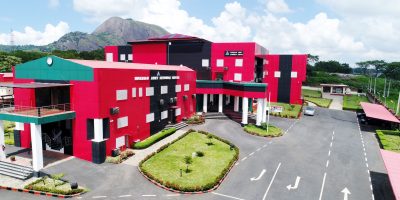Nigerian Army Resource Centre (NARC) Weekly Subject Experts’ Presentation was held at Hall C, TY Buratai Block, Abuja. There were two presentations made by the Subject Experts on Western Europe and Indian Sub-Continent.
The first presentation by Maj Gen GU Chibuisi subject expert on Western Europe discussed how Biden Links WW2 and Ukraine War in D-Day Address. The British Broadcasting Corporation (BBC) on 6 June 2024 reported on President Joe Biden’s speech, delivered in Normandy, France, as part of WWII Remembrance activities. President Biden used the occasion to honor the sacrifices of the past and draw parallels to the ongoing conflict in Ukraine. His address underscored the enduring importance of unity, courage, and the defense of democratic values in the face of aggression. He acknowledged the immense sacrifices made by the Allied forces, highlighting the courage, determination, and unity that characterized their efforts. He emphasized that the values and freedoms defended during WWII remain fundamental to global peace and security today.
In his analysis and lessons for Nigeria, Maj Gen GU Chibuisi quoted that Nigeria is however not actively opposed to Russia in the conflict due to its non-aligned status. However, it is instructive that Nigeria was among the 141 UN members who overwhelmingly voted to reprimand Russia over its invasion of Ukraine in March 2022. Nigeria has therefore taken a firm stand in support of democracy. Nigeria plays a significant role in promoting regional democracy and stability within West Africa and the broader African continent. As Africa’s most populous country and one of the largest economies, Nigeria wields considerable influence in regional politics and governance. Its efforts are evident through its involvement in regional organizations, peacekeeping missions, and democratic initiatives. In recent years, Nigeria’s role in sustainable democracy has been particularly prominent through the Economic Community of West African States (ECOWAS), which has been actively involved in mediating conflicts and pushing for democratic transitions.
He recommended that the FGN should boost its support of democratic processes in West Africa and Africa, through support for Nigerian Statesmen involved in such processes and empowerment of Nigerian embassies to organize workshops, seminars, and exchange programs that highlight successful democratic practices and governance models. Technical assistance and funding should also be provided to civil society organizations and electoral bodies, to train election observers, encourage voters’ education, and implement transparent electoral processes.
The second presentation by Brig Gen WD Nasiru subject expert on Indian Sub-Continent centered his presentation on how the Election Commission Dedicates “Violence-Free” Polls to Mahatma Gandhi. On 6 June 2024, NDTV reported that the Election Commission (EC) dedicated the violence-free Lok Sabha polls to Mahatma Gandhi. The Commission emphasized its efforts to counteract attempts to undermine the electoral process with rumours and unfounded doubts that could have cause unrest across the nation. Chief Election Commissioner Rajiv Kumar affirmed in a statement that the Election Commission, now in its 76th year, remains committed to serving the nation with unwavering dedication. Kumar reiterated the EC’s dedication to ensuring that every citizen’s right to vote was protected and facilitated, highlighting the Commission’s efforts to enable even the most ordinary Indian to participate in the electoral process without obstruction.
In his analysis and lessons for Nigeria Brig Gen WD Nasiru pointed that the Independent National Electoral Commission (INEC) of Nigeria was established in 1998 following the dissolution of the National Electoral Commission of Nigeria (NECON).This move was part of General Abdulsalami Abubakar’s transition to civilian rule. The creation of INEC marked a significant restructuring aimed at ensuring a more credible and transparent electoral process in Nigeria. In its early years, INEC faced the task of organizing and conducting elections after years of military rule. The first major test for INEC came with the 1999 general elections, which transitioned Nigeria from military to civilian rule. Omotola (2013) posits that “despite logistical challenges and allegations of irregularities, the 1999 elections were largely deemed successful, laying a foundation for future democratic processes”.
He recommended that the Federal Government of Nigeria should continue to intensify efforts to reform the electoral system, strengthen the legal frameworks, to address issues of electoral malpractice, use of money and political violence and also INEC should continue to prioritize technological innovations, aimed at ameliorating challenges of logistics, vote buying, transmission of results and many other forms of election malpractices.






































